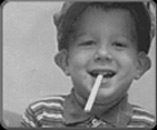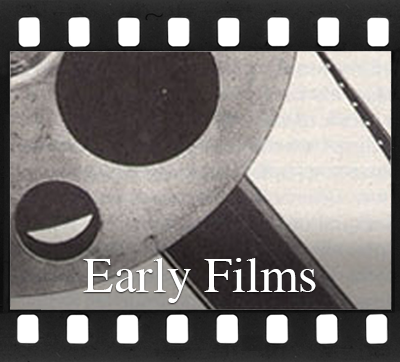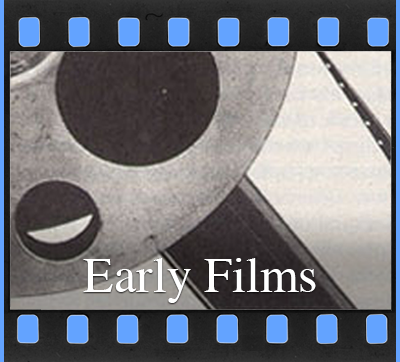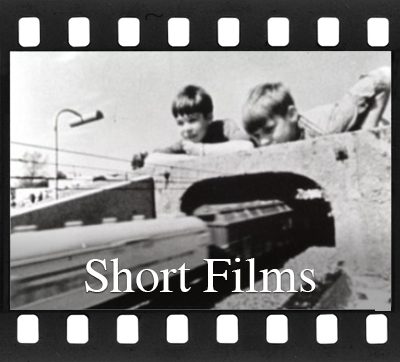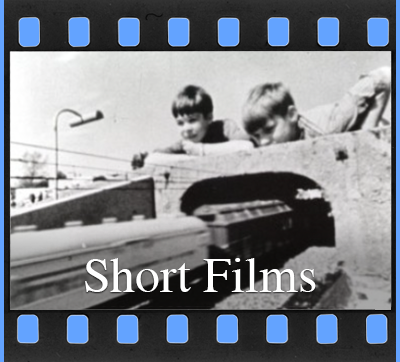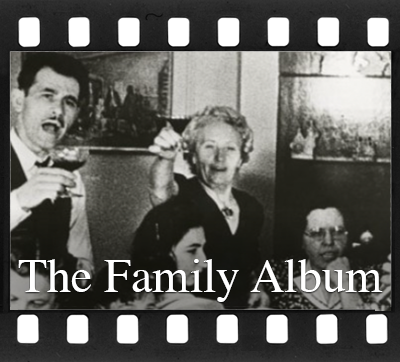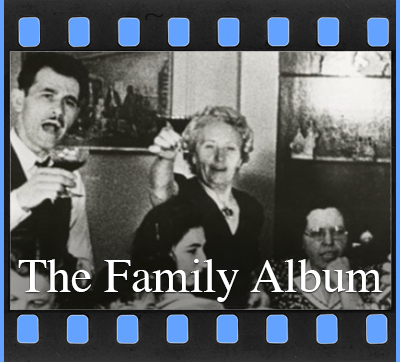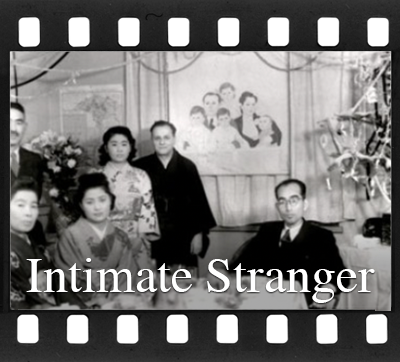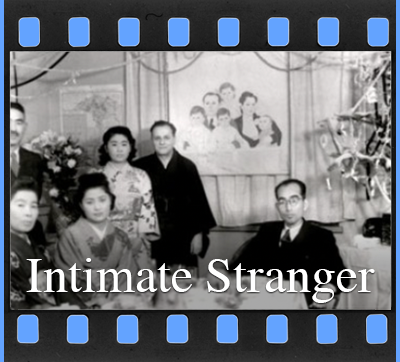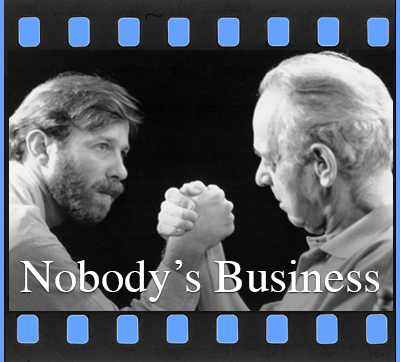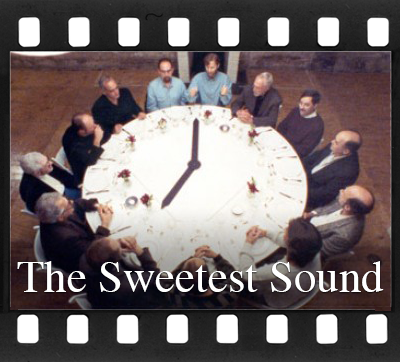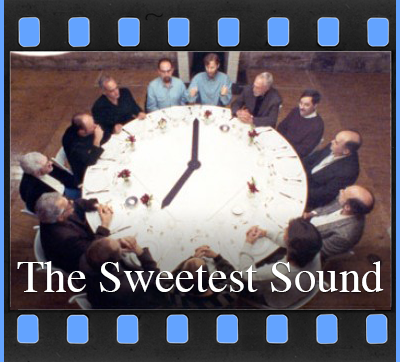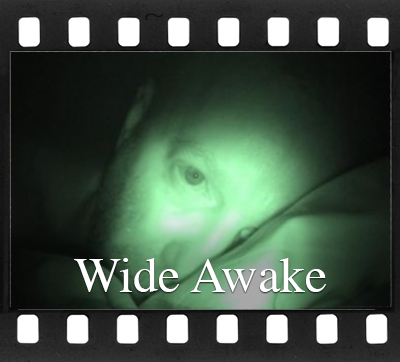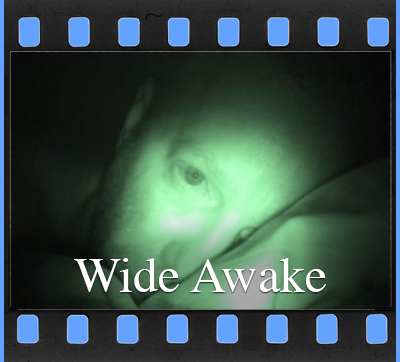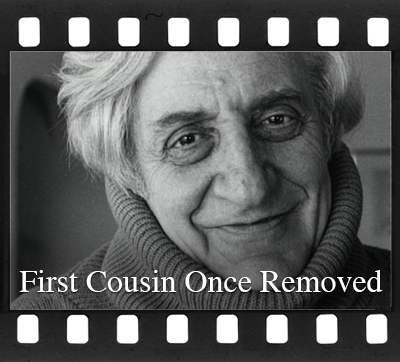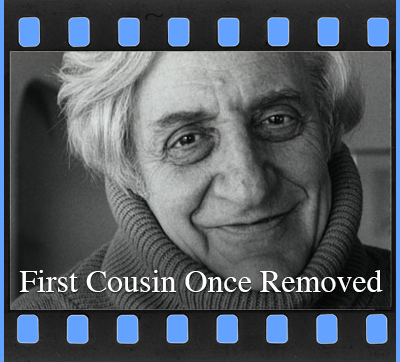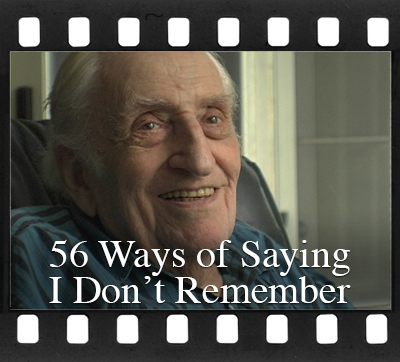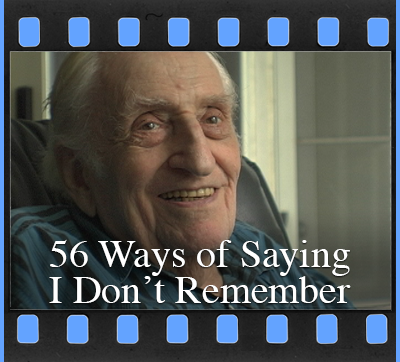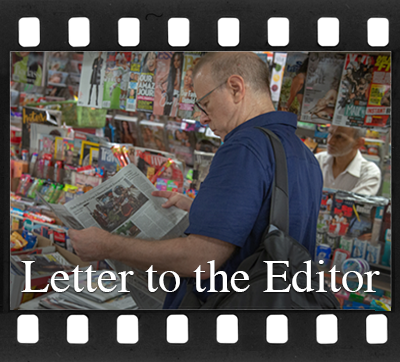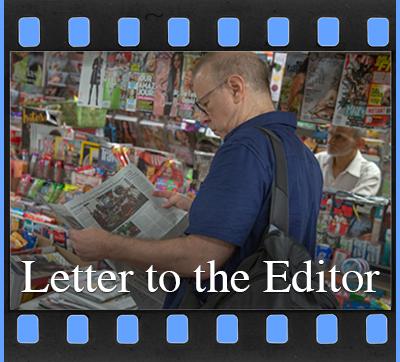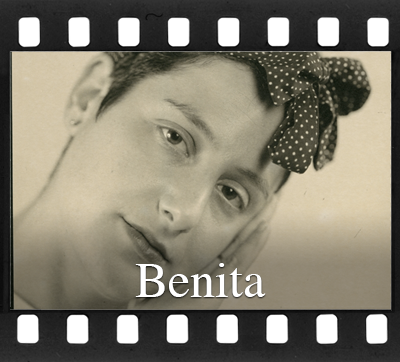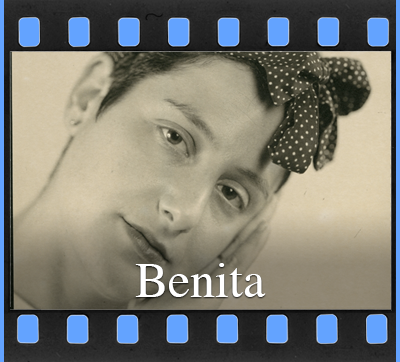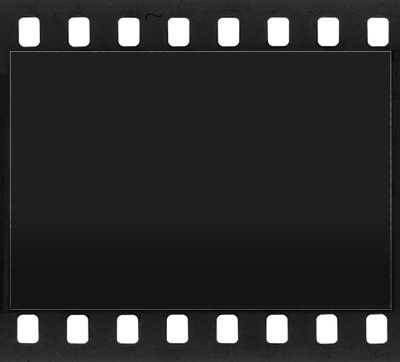Journal Excerpts
Sunday, October 22, 1995 7:35 pm
Aboard LOT Airlines Flight 7 en route to Warsaw, Poland to visit the towns and villages of my paternal ancestors. Once again I find myself in this strange position of searching. For meaning. For significance. To make a connection with ghosts.
I'm almost positive that I'm the only relative -- since the death of my (paternal) great-grandparents more than 75 years ago -- who has attempted (or will ever attempt) to visit the small Polish towns they lived in, let alone search for the forgotten tombstones that mark their graves. I am like some figure from another world -- their idea of me only a pure (and probably frightening) figment of the idealized America to which they bequeathed their son Benjamin, my grandfather. But yes, it is me who returns to visit -- not any of their children, their grandchildren, or any (other) of their great-grandchildren. Just me.
And so here I am, once again, questing after people I didn't know, people I will never know. Hoping to breathe in (will I be put off by the pollution?), even one tiny molecule of air once upon a time exhaled by my ancestors that might still be floating around the Polish countryside. Looking to incorporate it into my body, my breath, my being. And now, also in front of me, a personal reckoning (at long last) with the holocaust--until now, somehow the tragic story of other Jews, outside of and unrelated to me.
I know there were other family members who perished -- with names I'll never know, who came from branches clearly visible on my family tree -- with parts of me inside of them. All if not most American Jews know this feeling, can share this history, this connection with a "community of destiny." Now I will be able to feel it directly, when I visit the cold stones at Treblinka (the "death camp" closest to Raigrod and Jasionowka, the towns in which they lived) this trip.
I am a little scared. Can my adrenaline sustain the parallel passions of my simultaneous agendas? To connect as a genealogist with my personal heritage, to find my way back to my past - if only so as to feel the pure and even simple satisfaction at having made the effort to pay my respects... AND... to document this reckoning, this journey, this adventure of the soul, so that I might share it with the world as part of a film about my father. Somehow in the cauldron of my life's process, this feels important -- both as personal gesture, and as public example.
Tuesday October 24th 1995 3:30 am
Lomza, Poland
Went to the Jewish Historical Institute upon arrival in Warsaw Monday morning, after having arranged for a car rental - a hatchback Ford Fiesta. I drove throughout downtown Warsaw and then out to this rural northeast countryside feeling quite comfortable with the stick-shift operation. For some reason I had worried about driving here.
Off to Treblinka - site of Nazi extermination camp - some 17,000 jagged stones, each representing a different town where Jews were murdered. Emotionally haunting. Visually stunning. Shot two rolls of landscapes - stones in foreground against trees and meadow in the background. The landscape remembers. You can feel it.
Then we drove to this motel, just outside of Lomza, which is the site of the regional archive for the Raigrod (the town my grandfather was born in) area. We plan to get up early and visit the archives to research the "Berliner" family name.
I wonder if I can finally learn...
-the time and place of my great-grandparents marriage.
-the maiden name of my great-grandmother.
-the names of their parents.
-the times and places of their births.
Doing genealogy is like being a private detective. As simple as they sound, uncovering these tiny details would be as satisfying as solving a crime.
Tuesday October 24, 1995 9:15 pm
Raigrod, Poland
Up at 7:15 AM. Big breakfast: scrambled eggs, tropical fruit juice, dried mango strips, granola with soymilk, and bread, most of which I brought with me anticipating some difficulties with meal choices given my vegetarian diet.
Then off to the Lomza regional archives office. They gave us every book of birth, marriage and death records they had - several of them in Russian, the rest in Polish.
Nothing. Not one thing. A needle still in a haystack.
And then the archivist -- her name was Danuta -- suddenly came out of her office with one last book of civil records from Raigrod -- dated 1893, which somehow, for reasons still not clear to me had been misplaced on the shelf -- or not yet re-filed in the archive -- which she excitedly indicated had a "Berliner" notation.
And sure enough.
There it was.
Mariola (have I introduced my guide) starts to translate from the Cyrillic (Russian), indicating one Shlomo Yitzchak married to one Ruchel Sutker (now I have the real and true spelling of her "maiden" name) were registering the birth of their child, Srul Ber. This child was the brother of my grandfather, Benjamin. I never even knew he existed - and - based on the family history I have pieced together from letters- it's clear that he must have died in infancy.
And so. There they were -- on record. Even my great-grandfather's signature. A discovery especially gratifying because it had looked so bleak up until then. I'd been feeling so full of despair -- that we were merely going through the motions - and that there would not be any specific "Berliner" documents in the archives of Raigrod. If only to experience that real moment of serendipity, it was a big thrill.
About Raigrod.
Rai means paradise.
Grod means settlement.
Settlement in Paradise.
My father's father comes from a place that means "settlement in paradise."
And a beautiful place it is indeed. On a large sweeping lake - old parts of town still allow me to imagine the look and feel of a century ago. As one of the inhabitants told us, referring to the old houses in his neighborhood, "Some of these houses have seen Czars."
This is, was, and should be a resort area. I'm told the old synagogue rested on a prime spot of land near where the lake softens its edges towards the center of town.
Then we went to the old Jewish cemetery outside of town. No roadside marker. No erect tombstones. Only fragments of sometimes jagged, sometimes smooth rectangular stones embedded in the forest grass and moss. Only an occasional headstone buried horizontally beneath the soil chiseled with barely discernable (and mostly eroded) Hebrew letters. I found myself using my heels to kick and scratch away the green overgrowth and leaves, in an angry but futile attempt to unearth what is no longer recognizable.
Scattered broken fragments. Lost history. Broken history.
A forest grows. History decays.
Oct 26, 1995 10:35 pm
Bialystock, Poland
First. A visit to the Bialystock Regional Archives Office. It didn't take more than 20 minutes to learn that there are no documents for either Raigrod for Jasionowka to be found there - Jewish or Catholic - for any years whatsoever. A big disappointment, but at least a clarity of sorts.
Then off to visit the home of Tomasz Wisniewska, the local expert on Jewish history, landmarks, cemeteries and synagogues - and author of the book on the Cemeteries and Synagogues in the Bialystock region. Tomasz has cornered the market on Jewish memorabilia -- including postcards and objects from this part of Polish Jewish history -- and has an amazing database of names, places and other historical information from which he conducts and builds his ongoing research.
Then off to the Jewish cemetery in Jasionowka.
Go down the main road towards Kolycin. Turn left at the impeccably manicured Catholic cemetery. Proceed along the road about 1000 yards, and turn left at the sign for the garbage dump. Go up the hill. Look to the left and behold the town garbage dump. Look to your right and the disheveled hilltop site, unsightly and seemingly (forever) untended, is the Jewish cemetery. Strewn about throughout are scattered headstones in various degrees of decay, covered with moss lichens -- chipped, eroded, covered with mold and crooked. Some are cramped together tightly. Others are boldly solitary, isolated and alone.
There is a section where graves exist as either piles of dirt or flat tombstones -- all of them overgrown with long grass - indistinguishable as graves. Clumps and mounds of grass in row upon row. The total presence is chaos and disrepair. A space -- a sacred space -- allowed to fall apart. A place of death in the process of dying.
I obviously couldn't locate the specific tombstones of my great-grandparents, who I know from letters are definitely buried here. It would be virtually impossible, even if I knew Hebrew fluently. In the course of my filming and obsessive examination of the place, I probably stepped upon each of their graves at least once along the way. It's quite possibly that I even photographed them without knowing it. I'm sure I left more footprints today than have been made here in decades.
Not what I hoped for. Not what I expected.
But...
If the footage I've shot works, I can use this lack of closure, this absence, -- the fact that I DIDN'T find their graves -- to create a deeper poignancy. A more aspiring poetry inside the film.
November 28th 1995 1:41 am
All this work, all this energy, this family history stuff is a densely but intricately woven roots system, which nourishes the tree that bears the fruit -- which is of course, the film I'm trying to make. I used to think I was doing two things at once - making a film and doing genealogical research. I now see them as synergistic -- an above and a below -- flowing into, through and between one another. Feeding one another.
It's coming together. I'm on a mission. There are powerful angels watching over me. I now know this. Before, this was something I could only hope for.
December 6th 1995 2:02 am
Let the record show that today is the day I began to cut pieces of film together -- to make editorial decisions. Not to just think about it, but to make actual cinematic events happen on the Steenbeck.
The first thematic category (of the interviews with my father) I explored was "A Film About Me?" in which my father (with sincere incredulity) questions why I (would) want to make a film about him (in the first place), and especially, why anyone would be remotely interested in such a thing. This is a similar theme explored in Intimate Stranger -- (ironically) initiated by Oscar himself in his dismissive put-down of his (ex) father-in-law, my grandfather, Joseph Cassuto -- but here he is speaking in first person, about himself, his own life, and if it didn't sound so funny, it could make me cry. One way or another, the film must capture all the shapes and forms (the ironies) that his attitude takes.
I realize that I'm at my first fork in the road -- the first big set of decisions I have to make about this film: how to negotiate the balance, (and proportion) of the film as both a "portrait of my father" - and -- as an exploration of Berliner family history. I know that if the film is to ultimately succeed, it will be because I managed to integrate both elements and made them organic and resonant with one another. Not so simple.
December 7, 1995 2:32 am
As always, I'm trying to hold to the concept of making the film a little bit better (each and) every day.
Today I listen to my father talk about "Family History" and "Family Genealogical Documents," and then listened to interviews of my first cousins regarding what they know (more like what they don't know) about our mutual family history. Cut a rough outline of my father, which needs to be refined - but also - cut a relatively tight (but short) sequence of my cousins expressing their ignorance of our family history.
But I still have larger problems. No form. No stylistic architecture to build upon. The idea of using boxing footage as a symbol for our relationship (for parent-child relationships, for the Oedipal struggle) ) keeps floating in and out of favor. So much of my dynamic with my father is a kind of "verbal sparring." Using the boxers (as a motif) throughout the film could create a very rich metaphor in which elements of the emotional, the psychological and the physical all merge.
December 18, 1995 12:41 am
Was a zombie today. Somehow the Actifed and little bit of Vicks Nyquil I took last night (thinking it was more cough syrup than antihistamine) conspired to keep me awake virtually all night long. I could rest, but I couldn't sleep. Thrashing about. Ping-ponging between catnaps and a racing mind; between this position and that. Weird dreams. No repose. No relief. This is obviously not helping my recovery from the flu.
Nevertheless, I had a very productive day today. Went through the story how Oscar and Regina (my mother and father) met. Thinking through aspects of their courtship, marriage, divorce - and the very heart of the matter -- the aftermath of their divorce. How am I going to handle this cinematically? This is the time to examine the home movies of their honeymoon.
I must also realize that I'm not remaking Intimate Stranger. That by definition and design, this film is a unique entity and process unto itself. The way I made Intimate Stranger was the wayIntimate Stranger needed and wanted to be made, given the circumstances of my life at that time. This film and the plethora of issues and conflicts surrounding it, is another galaxy of people and cultures.
By the way, I stumbled upon my father saying than certain aspects of his life were "nobody's business," which strikes me as a more interesting title than "House of Cards," which I've been using on my grant proposals. For one thing:
- "everybody" will be watching.
- it's the portrait of a "nobody," an "ordinary person.
- it's a bold stroke to make a personal film and title it "Nobody's Business"
(I'm remembering that Intimate Stranger was originally called "Unfinished Business")
Tuesday December 19, 1995 1:14 am
This is what I wanted. This rhythm. This kind of fatigue. This kind of satisfaction after a long day at work editing the film. I'm still, of course, at the outer-most orbit of the editing process, still learning the material, still making selections (from what has already been selected). In effect, still just focusing in.
But...
Only by keeping this level of intensity can certain types of hunches warm up. Can seeds of affinity and possibility dare to sprout. Only by keeping the process warm can the various elements I've surrounded myself with be able to incubate -- to make connections and find their place.
So for instance today, my "aha" experience...
Last week I cut a section of my Berliner cousins talking about the "stubbornness" supposedly passed down throughout my extended family from my grandfather, Benjamin Berliner.
Tonight...
I'm watching my mother, Regina on camera tell me what she thinks I inherited from my father. She gives a brief list... predictable stuff, looks, intelligence, etc... and then she pauses and says "stubbornness," after which she gives me an unusual (and/but pointed) look.
Suddenly here's proof of a family trait being passed down through yet another generation. From Benjamin to Oscar and then/now to me. For my mother, an outsider -- but also a credible "witness," to declare that I've also inherited the "stubborn gene," is a pointed comment on the mystery of family mythology, the psychology of parenting and the linking of generations.
Saturday Dec 23rd 1995 2:26 am
I've been dealing more closely with the details of my father's life these past few days, losing touch somewhat with the larger issues of genealogy and family history. I still haven't figured out how to balance the inside and the outside? But I'm more convinced than ever that it's not a question of either/or.
My aspiration is to construct the film in such a way that they are inseparable and organically linked. As if the question (the distinction) never existed. I want the film to be about many things, all of them interwoven like the threads and strands of a thick rope...
aging
ancestry
anger
broken heart
brother and sister
compassion
cousins
death
disclosure
divorce
family
family traits
father and son
flesh and blood
forgiveness
genetics
grandchildren
hearing disability
heritage
honesty
hope
humanity
identity
immigration
intelligence
Jewish-ness
kindness
legacy
love
marriage
memory
mother and son
nieces and nephews
obligations
old age
parenting
pathos
reconciliation
regrets
risk taking
roots
stubbornness
trust
uncles
understanding
Saturday December 30, 1995 2:07 am
I finally managed to eek out a good days' work. By tomorrow night I should have a sloppy (and so therefore too long) skeleton of a story. Not a film, not close to a film, but a kind of clothesline - something to hang things on. To look at. To memorize. To get to know. The next step before the next phase. Gathering steam. Gaining momentum.
Of course, just because I've strung some sounds and images together doesn't mean I've faced -- let alone solved -- any of the big problems that lie ahead. Today was the third day this past week that I did not go outside at all. I didn't even go out to get the newspaper. I'm hunkering down. Committed. This film will not be what I want it to be for lack of effort.
In fact, I see the time between now and the summer as one long period of intense dedication to the film, especially if I want to finish by the fall. I am ready to sacrifice whatever it takes to get it done. Need and want are in balance. My only concern, and it is a healthy one, is the extent to which I will be both psychological and physically side tracked by my one-person audio/video installation exhibition at Sculpture Center in March. I want that too, to be a forthright statement and manifestation of my artistic presence and aesthetic force. My plate has never been so full.
One day I hope that my films and other installations works will be seen in context of one another -- balancing one another, counter-pointing one another, cross-fertilizing one another with added meaning and dimension - both in the understanding of my process making them and in the process of experiencing them.
January 1, 1996 2:53 am
Looking back on earlier journals, I've noticed how I've always needed to see the new year as a boundary for renewal. I'm trying to treat this new year as a bridge -- to keep up the momentum that has been slowly generating over the past few months -- especially the last few weeks -- but to move into an even deeper engagement with the film.
All of this time up until now has been devoted to making initial selections from all the material I've selected - to generating a "matrix of context" from which things can gravitate to one another. I now need to focus more on establishing structure. The architecture of the film.
Having already absorbed and learned the voluminous mass of stuff I generated for the film, I now need to get started putting together all of the fragments of ideas, inklings of affinities, and (not to mention experiment with the boxing footage) and look to see how I might tell the story of my father's life, amidst his stoical reluctance to talk about it. Then again, I also know by now that this film is no longer really "only" about my father's life; it's about "our" relationship.
Monday January 8, 1996 2:00 am
Three fat ugly reels -- with some yet-to-be-incorporated loose odds and ends on the side -- that's what I have to show for all of my work thus far. A bunch of talking heads and a lot of white leader.
Still no "form" as of yet. No story. No stylistic strategy. Only an inkling of something I have code-named "tick-tock." I'm experimenting with using a metronome set at one-second intervals to cut shots (quickly) together. Can it sustain itself as a metaphor?
In many ways the film is about time.
Time passing
Time healing
Time's toll
Good times
Bad times
A lifetime.
But outside of that I'm a bit lost. Maybe more than a bit lost. I'm struggling with the idea of on and off camera - with the trap of "illustration." With words covering and describing images. I've been concentrating on getting the interview - the words - to flow in correct proportion like a melody. Once I can get the melody in place, I can then arrange orchestration, vertical scoring, counterpoint and all other sorts of "musical" dynamics.
The question is (after all is said and done) whether the melody will be interesting enough? By the end of the month I want to have something to criticize - something that has a personality - that wants something from me. That needs attention. A new shot. A new sound. A new shape.
Beyond that, I'm still in virtual reclusion. No interest in seeing people. The big snowstorm over the weekend allowed me to cancel several dates and meetings I had planned. I recognize that this film is going to take a lot of work and thought and MAGIC and that I've got to be involved with it each and every day in order for it to bloom into its fully realized form. This particular soup is going to need a lot of stirring. And then again, because of my ITVS funding, I must finish by the end of the summer. That's a kind of pressure I've never had before.
Friday, January 12 3:05 am
The material is beginning to feel warmer. Friendlier. More "plastic." I can see the road ahead -- long, arduous, but passable. I've been here before; I think I know how to maneuver the bumps, the curves, the detours. Savoring the ride in measured frustration and unmitigated joy. In layers of exhaustion, diligence and fun. Closing in is its own reward -- narrowing the voluminous to the necessary; the arbitrary to the essential. Feeling perseverance as a "muscle" -- the "tenacity gene" I must also have inherited from my father. Doggedly closing in -- making finer and ever-finer circles towards my goal. A mental image that leads to a sharp, fine point. A center.
Sunday January 14, 1996 1:59 am
Another day in which I did not go outside -- not even surrendering to the lure of the Sunday New York Times (I know where I can get it tomorrow).
The thread of the film is now clear: the sparring match of words, of generations - of pasts, presents and futures -- between me and my father.
His stubbornness My stubbornness
His incredulity My need to believe
His recalcitrance My need to challenge
His indifference My earnestness
His steadfast attitude My circuitous cross-examination
These will be the keys to the structure of the film:
- a son making a film about his father
- a son confronting his father
- a song reconciling with his father
- a son daring his father to be/to become
- a son giving his father the greatest gift he knows
- a son and father matching wits
- a son and father fighting
- a son and father loving
Wednesday January 24, 1996 1:11 am
It's been more than a week. That should tell you something. I've had to drop the ball (so to speak) and concentrate time and energy on the upcoming sculptural exhibition. This past weekend Leslie Neblett and another old teaching assistant of mine from the new school, Judy Yeung worked on the photographic aspect of my installation work, CRITICAL MASS. Using liquid emulsion, we created a fractured facsimile blow-up up a front page of the New York Times to approximately 8 feet by 10 feet; my entire bedroom and bathroom became an elaborate photographic darkroom -- messy, dirty, and smelly. But with a few exceptions that we'll have to redo, our intense co-operative teamwork accomplished the task. Almost all of it in the dark.
I'm feeling anxiety. I want the film to proceed... but with a deadline of mid-March, I want this exhibition -- my first one-person gallery show in New York -- to be special and "authentic. A re-focusing of the laser beam. A re-dedication of my priorities as the next six weeks move forward towards the opening on March 19th. ." Somehow I'm planning six new pieces for the show. Thankfully, mercifully, my assistant, Leslie Neblett is absolutely amazing.
Saturday April 6, 1996 2:00 am
It's been a while. As always. Lots to say, to tell, to remember, to complain about. To celebrate. Not all here though. Not now. I just have to get back in the spirit of writing and communicating -- to get back to the satisfaction of summing up a long, hard day and nights' work.
Yesterday I showed about 15 minutes of the film to my cousin, the poet, Edward Honig, and his friend Jean Zaleskie, who is a remarkable painter. They responded very well, and I am encouraged. The film is beginning to touch a nerve. To reach a kind of truth about "identity." About some of the hidden places inside of "family." My father is so honest, so raw, so real. He's incredibly alive as a character. I just need to let him be himself.
I've decided to go ahead and call the film, Nobody's Business. Given the interruptions of my gallery exhibitions, and the pressure of finishing by the end of the summer, it will not be as polished, or as graphically/visually sophisticated as Intimate Stranger, but that's okay. This film needs to remain somewhat "raw" -- its strength is grounded in the spontaneous dialogue between father and son, rather than the calculated logics of cinematic storytelling. I think it's coming together.
August 27th, 2001 11:56 pm
My father died on August 19th at 11:40 PM. He was buried on August 22nd. The funeral was held at Riverside Memorial Chapel, followed by a burial at the Mt. Judah cemetery in Brooklyn, New York. He was 83 years old. The death certificate talks about complications resulting from a broken hip, immobility and anorexia. He had stopped eating and drinking. He was in tremendous pain. He was lost. Now he's gone.
An ache,
that had become my friend
is gone.
A worry,
that had engulfed my life
is gone.
A wound,
that stuck around so long
it had become familiar
is gone.
The loneliest man in the world is now buried in a crowded cemetery.
At the cemetery after the prayers and burial rituals were over, I asked one of the grave diggers if I could borrow his shovel and join them in filling in the grave site. Sweating profusely in my black suit on that hot summer day, it felt good to really participate in his burial with my own two hands. With my own sad, nervous, frenetic energy.
In interview after interview with him during the course of makingNobody's Business, in discussing the subject of death -- his own death especially -- he was always determined that he would sooner die than become a "doddering old fool" (his words), who "a nurse or his own children have to put in and out of bed." I can hear his words from the film right now - "I'd rather die." He was always afraid that he might live "too long."
Well, in effect, he did. The last few weeks of his life -- especially after the broken hip -- were torturous on almost every level. It was sad to watch, it was pathetic to hear, and it must have been hell for him to live through.
Anyway I look at it, and there are several of them, his death was merciful. Did he stop eating because his dementia caused him to forget what food was? Did his dementia make him forget how to swallow? Was he so disoriented that he could no longer coordinate (let alone remember) the survival skills of chewing and swallowing?
Or...
Did the morphine do as morphine does? Confuse him. Sedate him. But, most critically, take away his appetite. If nothing else, my father lived to eat. In fact, pizza was the litmus test. When I put a slice of pizza in front of him a few days before he died, and he wasn't even remotely interested, I knew something was very wrong.
And/but...
Or...
Did he stop eating because he had had enough? If you think about the layers of information that dementia patients must, but usually cannot negotiate - the who, what, where, and when of life (they've long ago lost connections to the how and why), the superimposition of past, present, and future, and the inability to put words into coherent sentences -- you can understand why they often exhibit an anger born of pure frustration. Frustration at watching it all slip away and sensing, knowing, ("I'm all fucked up," he used to say) that you're drifting out to sea and that nothing -- and no one -- can do stop it.
Imagine...
What if amidst all his disorientation he still had it in him to make one last decision. What if there was still one final stronghold of awareness left; enough strength and lucidity to focus on the simplest of choices a human being might ever have to make. To stop eating. To say, "I've had enough." What if he was lucid enough in his own chamber of horrors -- his swirling circles of confusion -- to summon up the last vestiges of psychic energy he had left after fighting off and holding on (for dear life) amidst the constant thrashing of the hurricane storm that was his pain -- and simply say, "enough." And decided to let go.
Of course, this is what I would like to believe. That at the core of his lost soul was an island of clarity. A fortress of willfulness that protected his ability to make one final yes or no decision. He was after all, one tough son of a bitch. Most likely though, his death was a combination of bad luck, and/but dumb luck: too much pain from his broken hip, too much morphine, and not enough wisdom and knowledge on the part of the nursing home doctors to understand its stupefying power.
When he broke his hip, it seemed apparent to Lynn and me that even if he healed properly (no small achievement) given his lack of comprehension as to what happened in the first place -- and his inability to participate in his own rehabilitation -- that his life had spiraled out of control to a point of no return. He almost certainly would have remained bedridden for the rest of his days, having to be lifted and carried onto and out of wheelchairs. His final bits of self-containment -- his ability to go to the bathroom, to clean his teeth, his ability to move from bed to chair and back again, even by holding onto the walls, maybe even his ability to eat - the simple things -- were going to be lost for the rest of his days.
For the record, after spending almost seven hours with him on the day of his death -- after watching him writhe in pain, after seeing him lost in the far reaches of delirium, after hearing him scream at the slightest touch, after seeing him become an animal -- at once in morphine heaven and in starvation hell -- all the while gripping and grasping the sheets, the bed, the pillow, my hand, Lynn's leg, anything, holding on, holding on to anything for dear life -- after watching his face and body, pale and frail, thin - no - gaunt from two weeks of malnourishment - no - no nourishment. After being told he was now a candidate for a feeding tube to be inserted inside his stomach. After being warned about terrible bedsores that inevitably befall the bedridden. After seeing the pall of death in his eyes -- his vacant gaze no longer the dominant feature of his misery, if only because now he wouldn't even open his eyes from behind his frantic, crazily energized nightmare. And yes, he was living a nightmare.
Yes, for the record...
Lynn and I decided not to proceed with life-support measures should such a scenario have come to pass. We signed the papers that precluded so-called "heroic" measures intended to prolong his suffering. It was painfully obvious that his quality of life was gone and there was not going to be any dignity in keeping his heart beating while all else within and around him had called it quits.
Mercifully, he died that very night. We didn't have to be on a coma watch. We were spared the guilt of remorse over second-guessing ourselves. We didn't have to watch the ship sink, while others judged our fortitude, let alone our decision. . He died, drunk on morphine. Alone. With no one around. The same way he spent his days.
Because of Nobody's Business, I am truly able to say that I am at peace with myself now. I am sad, to be sure. But I have no unspoken agenda, no lingering bitterness, no harsh regrets. I have as much resolution as one could have at the death of a parent. Somehow making the film allowed me to free myself, to purge myself of most -- but of course not all -- of my Oedipal demons.Nobody's Businesswill live on, and my father will live with it and through it. Forever. The least likely soul to attain immortality will dance forever through people's hearts as long as the film is shown. I'll get to see him, hear him, and talk about him whenever I present the film for the rest of my life.
His death now changes the life of the film. Gives it more edge. Releases me to move on. To make a new calibration of my past, present, and future. Puts me at a crossroads. New directions in life. In work. In love. All of my equations are now open-ended.
"Oscar Berliner & Son" is now closed for business. We've retired. He's moved out, I'm moving on. Like everything else about him, it's a sad, melange of ironies and contradictions. But I loved him out loud and people heard, understood, respected, and seemingly -- in turn, found a way to love him too.
We learn from the lessons we live.
We live from the lessons we learn.
My father's legacy is (like he was) -- a bit twisted. As much based on who he was as how he was. Far more than anything he ever said or did, and mostly DESPITE what he said or did, was the core of what he didn't do, and couldn't say, that made him so endearing. He had it all and didn't want it. He had it all and didn't know what to do with it. He had it all and -- indignity-by-indignity, ailment-by-ailment -- life took it away.
I'm not going to be like him. Yes, a loving father one day, I hope. But, I'll never to let go of my joie de vivre. Never let melancholy dictate my choices. Never close shop before I have to.
But, and also...
I'll try and keep his indelible spirit, stubbornness, and willfulness, which is, after all pure ENERGY -- alive within me. I'll transform it into my own life equations, into my own outlets of growth and wisdom, into the fruits of my labor, into my films and artworks. The haunting memory of his sad, unproductive last years in isolation will become my "vaccine," immunizing me against the threat that I too might also succumb to (whatever genetic or family traits might have contributed to) his existential predicament.
I'm going to take care of my mind and my body. If I am destined for dementia -- like my father and his father before him -- I will stave it off as best I can by keeping my mind (mind is what the brain does) busy and challenged and engaged in the journey of creation up to and including the last of my days. I will remember my father as a kind of cautionary tale - one that I have absorbed, digested, and gleaned important truths from.
I'll never know (I never knew) that place inside his head where he lived most of the time. Thinking? Brooding? Philosophizing? Worrying? Lamenting? Praying? Coping?
That, after all, was his secret. Where he hid all the time. What kind of accommodations he had built for himself inside the very private one room shack that housed his thoughts. And that's okay. He was, after all, a most private man. One who did not trust very easily. Let him have his privacy. Let him be.
It's a full moon tonight. Or damn close to it. I just found the four-leaf clover given to me in Maryland back in March. I feel an optimism in my bones. This is the end of an era, the end of a sad story. A burden lifted. An opening in the clouds.
I gave him whatever he needed. My heart is full, but my head is clear. Lynn and Regina also see the clear horizon. They know the feeling.
The saddest man on earth can now have a restful sleep. Finally.
- ◻ SYNOPSIS
- ◻ AWARDS
- ◻ FESTIVALS & SCREENINGS
- ◻ WARSHAWSKI ARTICLE
- ◻ RENOV LECTURE
- ◻ NYU - DEC. 5TH, 2010
- ◻ STRANGER THAN FICTION - FEB 12TH, 2011
- ◻ SELECTED REVIEWS
- ◻ PRESS QUOTES
- ✓ JOURNAL EXCERPTS
- ◻ EULOGY FOR OSCAR BERLINER
- ◻ CREDITS
- ◻ MEDIA COVERAGE
- ◻ VIEW CLIPS
- ◻ PHOTOS
